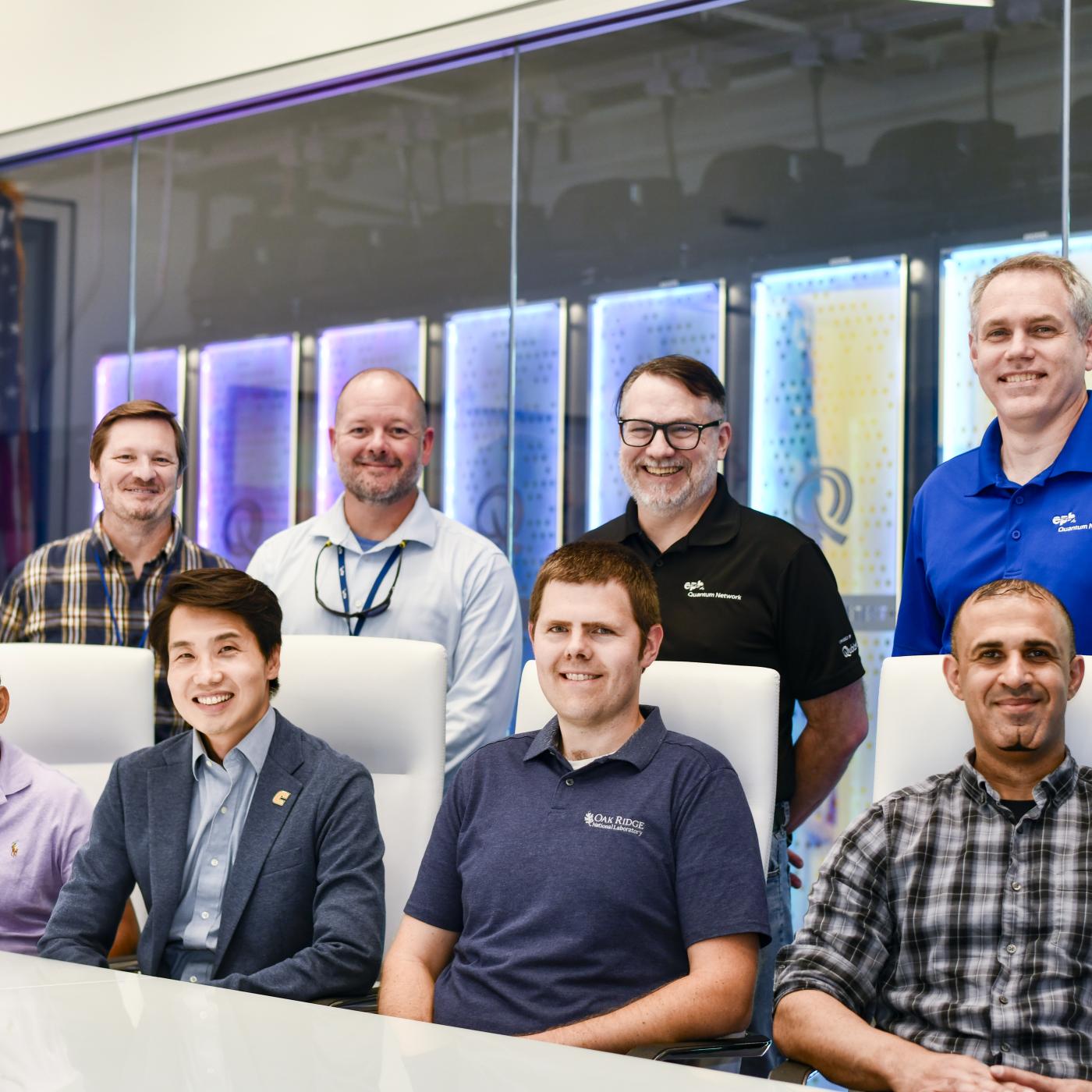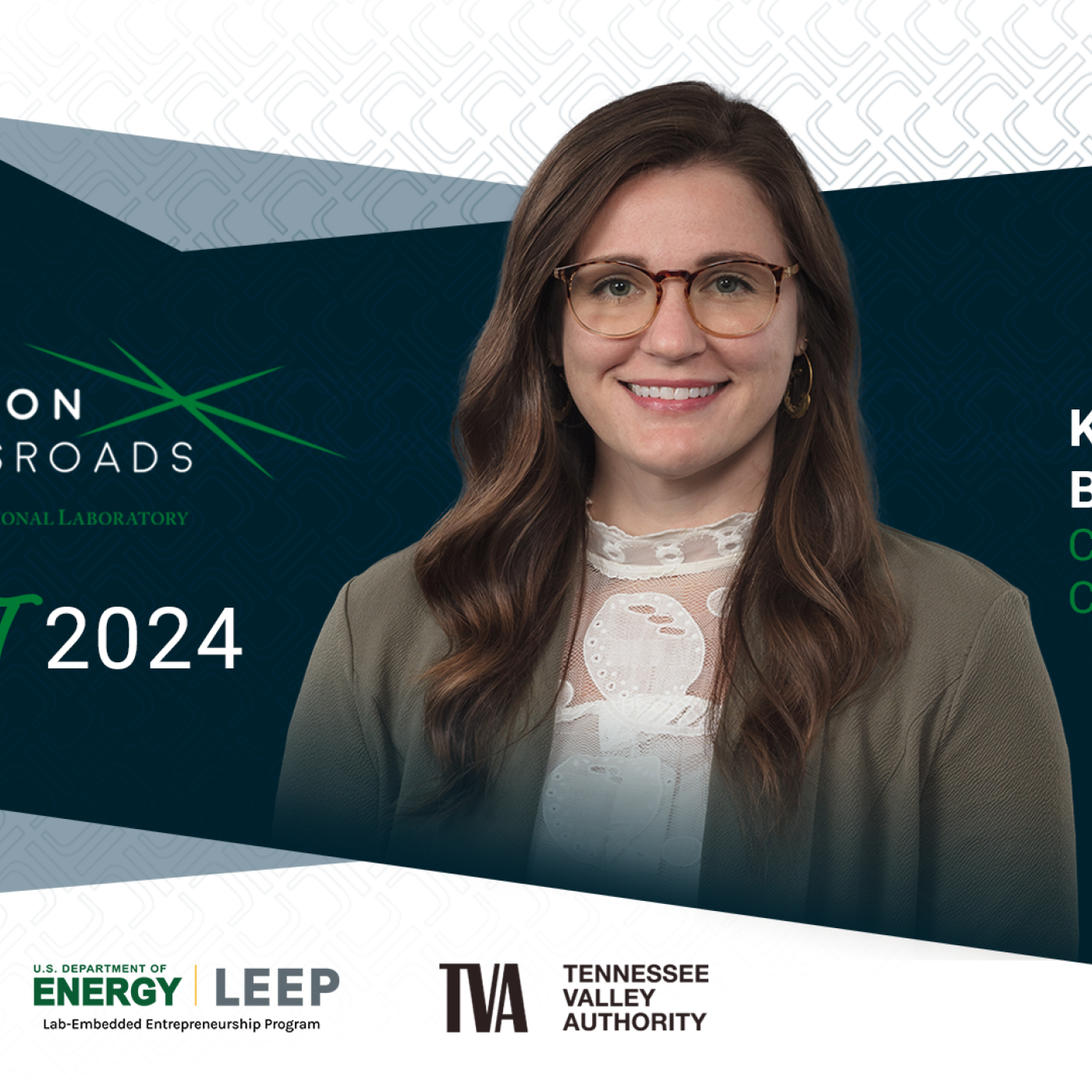
Filter News
Area of Research
News Topics
- (-) Biotechnology (24)
- (-) Critical Materials (29)
- (-) Frontier (45)
- 3-D Printing/Advanced Manufacturing (128)
- Advanced Reactors (34)
- Artificial Intelligence (101)
- Big Data (61)
- Bioenergy (92)
- Biology (101)
- Biomedical (61)
- Buildings (67)
- Chemical Sciences (73)
- Clean Water (31)
- Climate Change (106)
- Composites (30)
- Computer Science (198)
- Coronavirus (46)
- Cybersecurity (35)
- Decarbonization (85)
- Education (5)
- Element Discovery (1)
- Emergency (2)
- Energy Storage (112)
- Environment (201)
- Exascale Computing (42)
- Fossil Energy (6)
- Fusion (58)
- Grid (66)
- High-Performance Computing (93)
- Hydropower (11)
- Irradiation (3)
- Isotopes (57)
- ITER (7)
- Machine Learning (51)
- Materials (147)
- Materials Science (146)
- Mathematics (10)
- Mercury (12)
- Microelectronics (4)
- Microscopy (51)
- Molten Salt (9)
- Nanotechnology (60)
- National Security (73)
- Net Zero (14)
- Neutron Science (137)
- Nuclear Energy (111)
- Partnerships (51)
- Physics (64)
- Polymers (33)
- Quantum Computing (37)
- Quantum Science (72)
- Renewable Energy (2)
- Security (25)
- Simulation (52)
- Software (1)
- Space Exploration (25)
- Statistics (3)
- Summit (59)
- Sustainable Energy (130)
- Transformational Challenge Reactor (7)
- Transportation (99)
Media Contacts
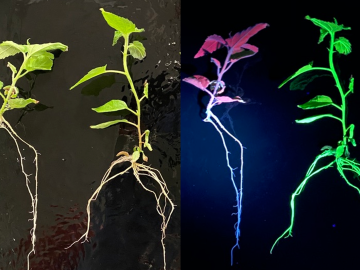
Detecting the activity of CRISPR gene editing tools in organisms with the naked eye and an ultraviolet flashlight is now possible using technology developed at ORNL.
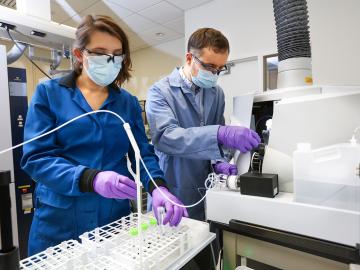
A new technology for rare-earth elements chemical separation has been licensed to Marshallton Research Laboratories, a North Carolina-based manufacturer of organic chemicals for a range of industries.
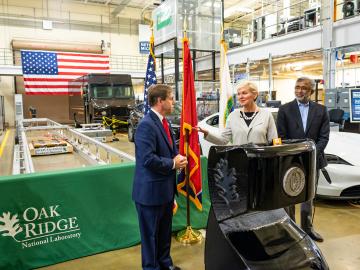
Energy Secretary Jennifer Granholm visited ORNL on Nov. 22 for a two-hour tour, meeting top scientists and engineers as they highlighted projects and world-leading capabilities that address some of the country’s most complex research and technical challenges.

The U.S. Department of Energy’s Office of Science announced allocations of supercomputer access to 51 high-impact computational science projects for 2022 through its Innovative and Novel Computational Impact on Theory and Experiment, or INCITE, program.
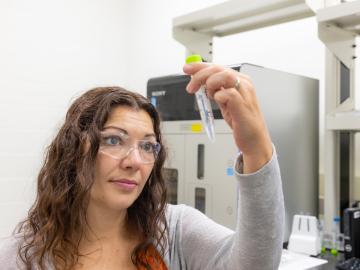
Carrie Eckert applies her skills as a synthetic biologist at ORNL to turn microorganisms into tiny factories that produce a variety of valuable fuels, chemicals and materials for the growing bioeconomy.
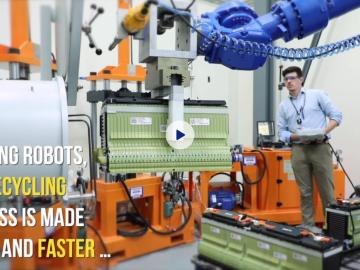
Researchers at ORNL have developed a robotic disassembly system for spent electric vehicle battery packs to safely and efficiently recycle and reuse critical materials while reducing toxic waste.
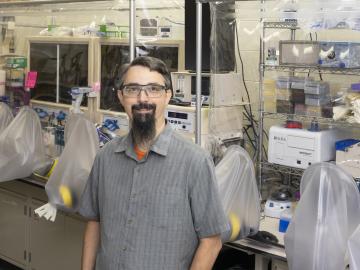
As a metabolic engineer at Oak Ridge National Laboratory, Adam Guss modifies microbes to perform the diverse processes needed to make sustainable biofuels and bioproducts.
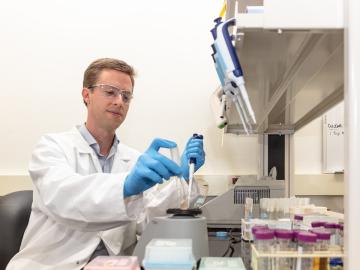
In a step toward increasing the cost-effectiveness of renewable biofuels and bioproducts, scientists at ORNL discovered a microbial enzyme that degrades tough-to-break bonds in lignin, a waste product of biorefineries.
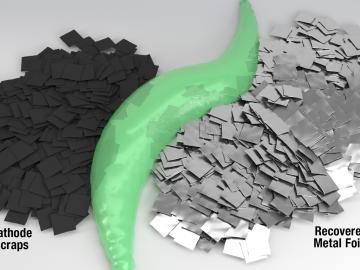
Scientists at Oak Ridge National Laboratory have developed a solvent that results in a more environmentally friendly process to recover valuable materials from used lithium-ion batteries, supports a stable domestic supply chain for new batteries
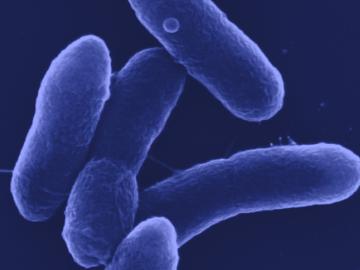
A research team led by Oak Ridge National Laboratory bioengineered a microbe to efficiently turn waste into itaconic acid, an industrial chemical used in plastics and paints.


